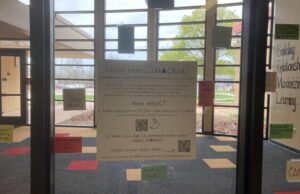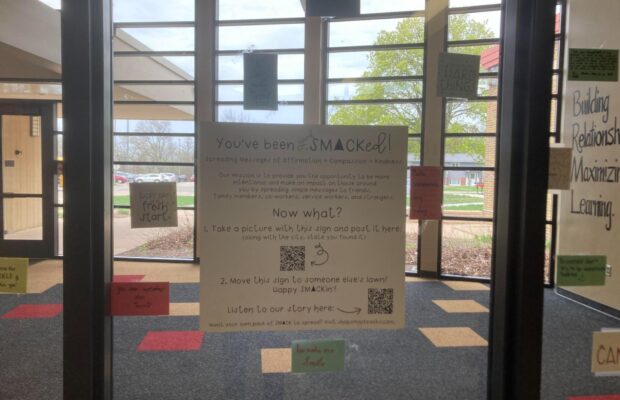Apple’s resistance to FBI makes right call for privacy

Our View
On Dec. 2, 2015, 14 people were killed and 22 people were injured in a terrorist attack in San Bernardino, Calif. In investigating the shooting, the FBI has requested that Apple make a backdoor into their products so the FBI can figure out the shooters’ motivations. If they were to get into the shooters’ phones, they would be able to figure out if they were part of ISIS or another terrorist group.
But if Apple were to create this back door, it would potentially close the door to user privacy. Millions of customers in the United States and around the world trust Apple to protect their privacy. Every day we hear of another company that gets hacked such as Sony or Target or hospitals or even key components of the federal government. People have been relying on Apple to make a secure product for consumers for good reason.
Many students agree, including senior Madisen Timmer, who has been an Apple buyer since the beginning with her iPod Touch, said that she would consider switching to another phone provider such as Samsung if Apple were to create the back door. “I don’t feel like I could trust the company anymore with my personal information,” Timmer said.
Timmer argued that the FBI is going over boundaries that they don’t belong in because it would be violating the privacy of Americans. “It’s definitely a lot to ask of Apple as a company to compromise the security they have worked on to secure for so many years,” Timmer said. Once Apple were to create the backdoor, there would be no promise that another hacker wouldn’t be able to get into anyone’s iPhone. Many top tech companies, including Google and Facebook, are concerned that government intrusion would make it easier to hack into their products as well.
The United States is viewed as a free country, and many view this request as the FBI taking away some of our freedom. This week, the FBI floated another idea that Apple could create the back door, not turn it over the government and then destroy it immediately afterward, but if that were to happen, the FBI and other investigators around the globe could request successive phones to be broken into again. It would become a repetitive cycle, and the back door to tearing down the privacy of citizens would crack ever wider.









You must be logged in to post a comment Login